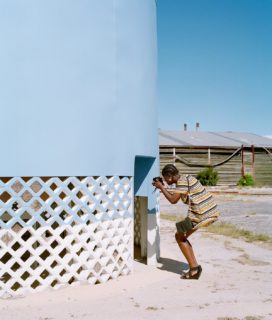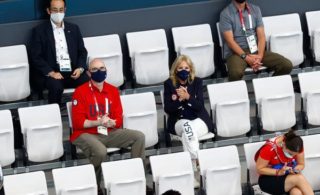
THE FOOTBALL World Cup that kicks off in Qatar on November 20th is a peculiar affair in lots of ways. It is happening in the middle of the European season. The host country has just 3m people (the vast majority of them foreign workers), covers an area less than half the size of Wales and has almost no footballing tradition, though it has poured billions into the sport and the tournament, and the national team are Asian champions. Some fans will watch with misgivings, or not at all, because of the treatment of migrant labourers, women and gay people. Then again, people have had such qualms before, or should have: the previous World Cup, after all, was in Russia; the 1978 tournament was in Argentina, then run by a murderous junta.
One other apparent oddity is also less curious than it may look. Although the world’s greatest football tournament brings together most of the world’s best players, it doesn’t have room for them all. Football is a team game, and if your national team isn’t good enough or you aren’t picked, you don’t go. The history of football is studded with stars who never appeared on the game’s global stage. In 2022, too, a fair few fine players will be absent.
Most of those missing out over the years have been from small countries without enough other good players to get through the qualifying stages. In the mid-1990s Liberia’s George Weah was feted as the world’s best player. He won league titles in France, with Paris Saint-Germain, and Italy, with ac Milan, but he couldn’t haul his country to a World Cup. He was a national hero all the same—and has been Liberia’s president since 2018. Jari Litmanen won the uefa Champions league with Ajax in 1995 and Sami Hyypia did so with Liverpool ten years later, but Finland have never made it to football’s biggest showcase.
For some the timing didn’t work out. Another great George—Best—played 37 times for Northern Ireland between 1964 and 1977. His country didn’t reach a World Cup between 1958 and 1982. Liam Brady won the last of his 72 caps for the Republic of Ireland in a farewell friendly match shortly before the 1990 tournament. Having played as a substitute in just two qualifying games, he was left out of the squad for Italy.
Plenty of players from bigger countries have missed out too. A mistake by France’s David Ginola led indirectly to a last-minute winning goal for Bulgaria in a qualifier in 1993. That cost his country a place in the 1994 tournament—and blighted his international career. In 1998 France won the World Cup on home soil without him. Another shimmering French talent of the 1990s, Eric Cantona, who scored in that defeat by Bulgaria, didn’t play in 1998 either. By then Zinédine Zidane was the chosen genius, and the mercurial Mr Cantona had moved on. His future lay in acting and beach football.
Perhaps the best of the World Cup’s absent greats, Alfredo Di Stéfano, lost out with not merely one country, but three. In the late 1940s, amid a players’ strike in his native Argentina, he left for a breakaway league in Colombia. Argentina later withdrew from the 1950 tournament and didn’t take part in 1954; Colombia, for whom he also played a few times, was then outside fifa’s pale. By 1953 Di Stéfano had anyway moved to Spain, where he became the spearhead of the Real Madrid team that won the first five European Cups, forerunner of the Champions League (he is pictured, in white, scoring in the 1960 final). Spain stuttered in qualifying for 1958, and were pipped by Scotland. In 1962 Di Stéfano was injured before the tournament in Chile. Although he made the Spanish squad he played no part.
Not surprisingly, you could fashion a pretty decent team from the countries that have failed to qualify in 2022 (especially if you stretch the rules to include players who have featured in past tournaments). It helps that Italy are among the missing—for the second time in a row, despite winning the European championship last year and boasting four World Cups. In a fantasy line-up Gianluigi Donnarumma might be in goal, joined by Giovanni Di Lorenzo, a right-back, Leonardo Bonucci, a veteran centre-half, Jorginho, a Brazilian-born midfielder, and Federico Chiesa, a speedy goal-scoring winger (though he has only just returned from a serious injury).
Austria’s David Alaba, Sweden’s Victor Lindelof and Scotland’s Andy Robertson are also candidates in defence. Mr Chiesa faces competition from Algeria’s Riyad Mahrez, Wilfried Zaha of Ivory Coast and Andriy Yarmolenko of Ukraine. The strikers might include Mohamed Salah of Egypt and two men who have helped to thrust Napoli to the head of Italy’s Serie A: Khvicha Kvaratskhelia of Georgia and Victor Osimhen of Nigeria. And consider two Norwegians whose clubs are vying for the top spot in England’s Premier League: Martin Odegaard, a midfielder who captains Arsenal, and Erling Haaland, who has been banging in goals for Manchester City at an astonishing rate.
That has the makings of a squad that would surely at least reach the knockout stages. The bitter reality, of course, is that none of them will be in Qatar, let alone playing together. Realistically, Mr Kvaratskhelia for one is unlikely ever to play in a World Cup. Some unsentimental folk, though, will be glad of their absence: the coaches and fans of their clubs. When European club matches resume, these unlucky players will be refreshed and uninjured. Come the end of this disrupted season, when the World Cup will be fading in the memory, that may make a difference in the hunt for trophies.




